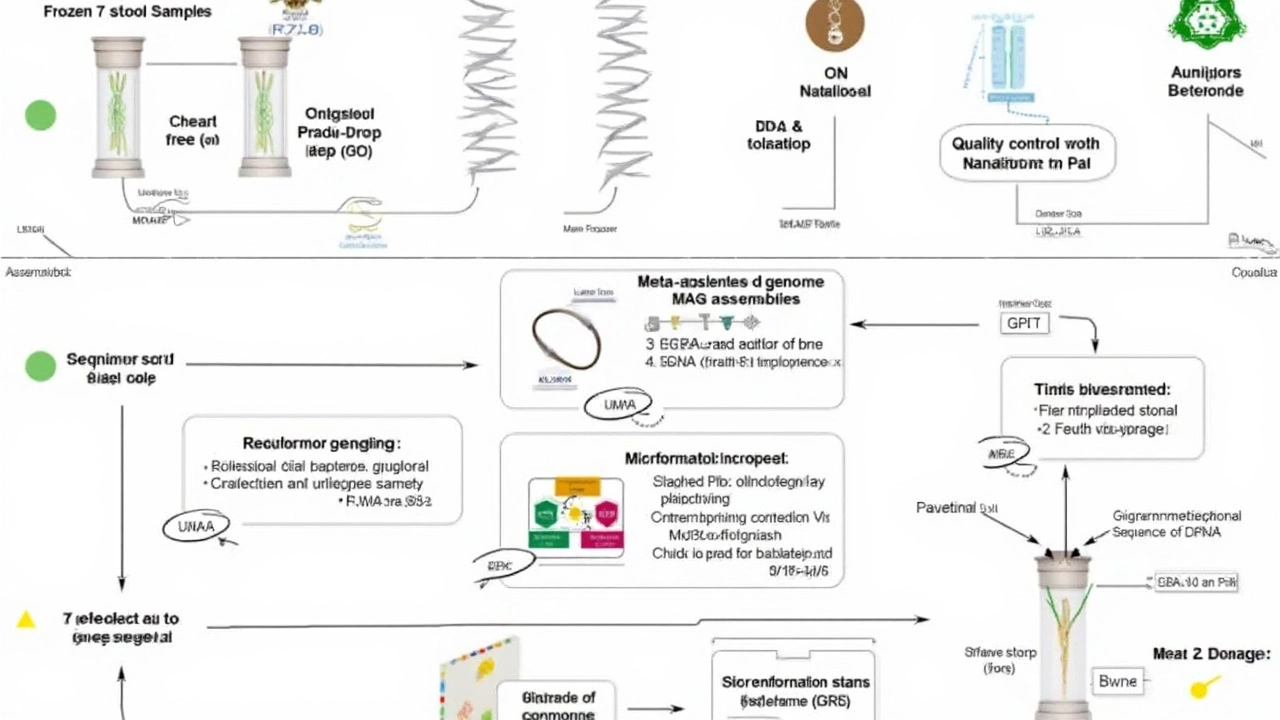UKHSA Bets Big on Metagenomics to Spot Health Threats Early
The UK Health Security Agency (UKHSA) is making waves with its new metagenomics Surveillance Collaboration and Analysis Programme—better known as mSCAPE. Announced in late January 2025, this isn’t your usual public health venture. For the first time anywhere, national health authorities are turning to pathogen-agnostic metagenomics to track outbreaks, spot dangerous mutations, and guide treatment strategies, all in near real time. That might sound technical, but the impact could be massive: imagine finding a new virus before it spreads, or tweaking treatments because scientists spot a microbe changing its game.
The way it works is surprisingly straightforward. Instead of relying on traditional tests that look for known bugs, metagenomics lets you scan any clinical sample and see the whole range of microbes hiding out. This is a game changer for surveillance, since many serious infections come from bugs we don’t expect—or don’t know at all. All the info is anonymized, so patient privacy stays tight, but the statistical power is huge. Labs all over the country feed data into mSCAPE, where it’s analyzed alongside efforts from some academic heavyweights: the University of Birmingham, the University of Edinburgh, and Guy’s and St Thomas’ NHS Foundation Trust. NHS England’s Networks of Excellence for Severe Respiratory Infections are also tying this tech into their front-line work on the sickest cases.

Spotting Outbreaks and Stopping Threats Before They Spread
Officials like Susan Hopkins, UKHSA’s Chief Medical Adviser, are clear about why this matters. She says mSCAPE’s global data sharing gives experts everywhere a head-start. Let’s say a new flu variant pops up in Wales or a superbug emerges in a London hospital. With mSCAPE, that spike shows up almost instantly, not weeks later. That means the UK can scramble resources, alert hospitals, or even help other nations brace for impact.
But there’s more to it than just outbreak alarms. By tracking the mutations in bacteria and viruses, mSCAPE could tip off doctors if a germ is resisting a popular antibiotic, or if a vaccine needs to be updated. For people on the front lines—think A&E doctors, infection specialists, and NHS planners—these insights aren’t just interesting. They’re vital. Sue Hill, NHS England’s Chief Scientific Officer, highlights how bringing this technology into NHS networks will make the response to severe respiratory infections more accurate and much faster.
What’s really wild here is the scale. This is all happening across countless NHS labs, feeding into a national network that crunches unimaginable amounts of genetic data every day. By aggregating this pathogen detection info with fresh software and detailed data, mSCAPE delivers a real-time snapshot of what’s happening under the surface. It’s a huge boost for health security and means the UK could act much quicker when something nasty emerges.
Nobody’s pretending mSCAPE will solve every problem overnight. But with more outbreaks jumping borders and resistance to medicines creeping up, the ability to see threats before they explode could reshape how the UK—and maybe the world—deals with infectious disease. Public health isn’t just about watching; it’s about acting faster than the germs. That’s the bet UKHSA is making with metagenomic surveillance.
